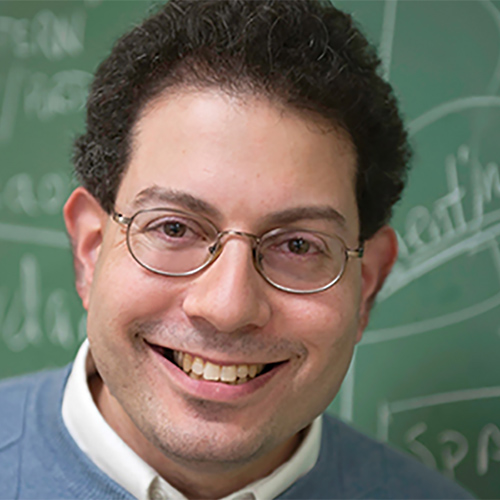
Every year, each fellow in the CJH fellowship program presents their research to fellow scholars in a seminar style setting over zoom. Each fellow is paired with a scholarly respondent, who provides commentary and leads the ensuing discussion with the presenter and larger audience. We invite members of the scholarly community and interested public to join us to explore these works-in-progress with emerging Jewish Studies scholars. To participate in the seminar and receive the pre-circulated paper, please RSVP by contacting Dr. Miriam Mora
Shortly after the end of World War II, the international Jewish health care organization Oeuvre de Secours aux Enfants (OSE) opened a branch within the Jewish community of Morocco, still part of French North Africa before its independence in 1956. Together with the American Jewish Joint Distribution Committee (JDC), OSE-Morocco set-up socio-medical services and promoted preventive health care and education, particularly addressing the health of children and of those living in poverty. What made the health of Moroccan Jews such a pressing issue in the late 1940s? What does this tell us about the shifting currents in post-Holocaust Jewish humanitarianism? This presentation explores how both local community leaders and international Jewish organizations assigned a new urgency to the state of impoverished Jews in French Morocco, and how health care raised questions about state and community responsibilities and Jewish belonging in postwar North Africa.
To RSVP for this event, please email Dr. Miriam Mora
Julia Schulte-Werning is a PhD candidate at the University of Vienna. Her research interests are at the intersection of Jewish history, the history of humanitarianism, and the history of health and medicine. In her PhD project, she examines the activities of Jewish humanitarian organizations that provided healthcare for Moroccan Jews after World War II into the 1960s. Exploring how Jewish futures were negotiated through healthcare, she aims to shed new light on Jewish humanitarian internationalism and public health in a post-Holocaust world marked by decolonization. Currently, she is a Bookhalter Graduate Fellow at the Center for Jewish History, New York, conducting research at the YIVO Archives.
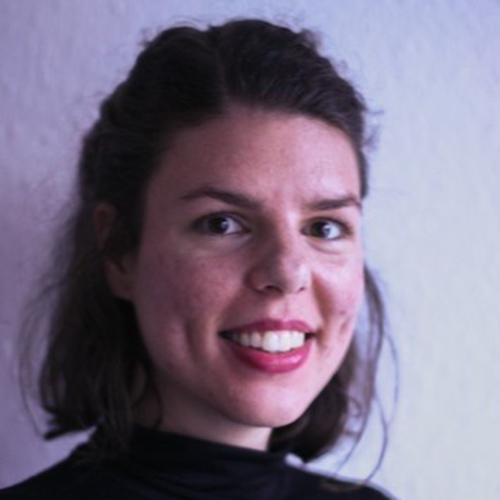
Jonathan Wyrtzen is Associate Professor of Sociology, International Affairs, and History at Yale University. His research engages a set of related thematic areas that include empire and colonialism, state formation and non-state forms of political organization, ethnicity and nationalism, and religion and socio-political action in North Africa and the Middle East and elsewhere. He has published two award-winning books, Making Morocco: Colonial Intervention and the Politics of Identity(Cornell, 2015) and Worldmaking in the Long Great War: How Local and Colonial Struggles Shaped the Modern Middle East (Columbia, 2022). His current project, "Nation in Empire," explores how spatial and symbolic boundaries were recurrently drawn and contested in relation to phases of overland and overseas imperial expansion and contraction in the long 19th century, using the United States, French, and British empires as companion comparative cases.
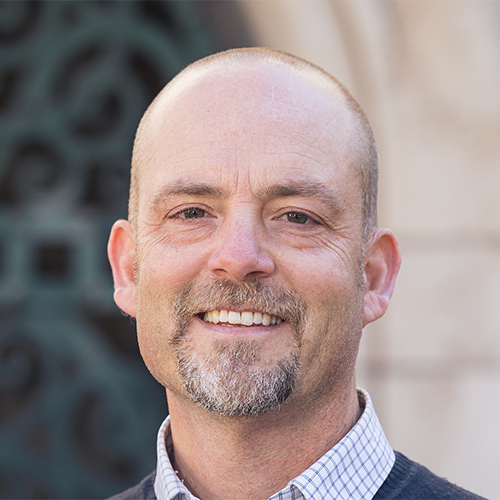
The paper examines the challenges Jewish immigrants faced with Argentina's family law in the early 20th century by focusing on bigamy as a useful category for studying the legal culture of Jewish immigrants. It examines the critical role of Ezras Noschim (EN), a Jewish-Argentine organization, in resolving marital issues and bridging legal understandings amid the Jewish migration to Argentina, a country characterized by its Catholic and immigrant identity. Caught between their own Eastern European legal tradition of state-negotiated marital dissolution and the absence of state-recognized divorce in Argentina, Jewish immigrants frequently faced multiple dilemmas concerning the formation and dissolution of marriages. The presentation delves into EN organization’s lay categorization of legal and ethical bigamy to shed light on the interpretive strategies employed by its workers and Jewish immigrants in managing the dichotomy of bigamy—as both a condemnable offense and an acknowledged reality of immigration. It focuses on two cases of legal and ethical bigamy to show that EN not only provided ad-hoc solutions but did so by delicately balancing the maintenance of immigrants’ legal culture with the need to forge a cooperative relationship with the unique case of the Argentine state’s policy on family law. Consequently, it shows how EN crafted a contractual bond with the new state, ensuring the integration of Jewish immigrants while preserving their legal heritage.
To RSVP for this event, please email Dr. Miriam Mora
Lelia Stadler is a PhD candidate at the Columbia University Department of History. She earned her BA and MA from Tel Aviv University. Her dissertation project is a social history of Jewish immigration to the transregional space of South America. It focuses on Jewish immigrants’ encounters with the state and asks how competing legal systems and legal norms in the countries of the region impacted the way Jews experienced family, marriage, and divorce.
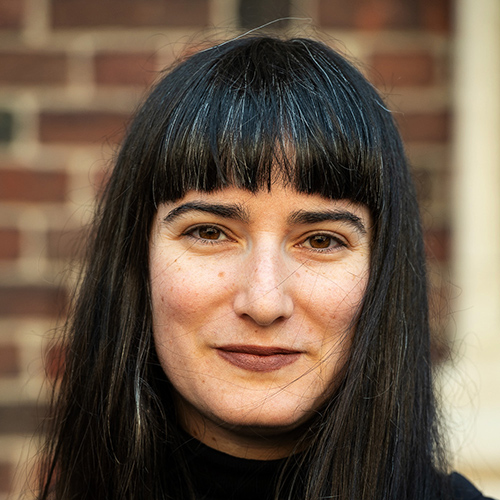
Jessica Marglin is professor of Religion, Law, and History, and the Ruth Ziegler Chair in Jewish Studies at the University of Southern California. She earned her PhD from Princeton and her BA and MA from Harvard. Her research focuses on the history of Jews and Muslims in North Africa and the Mediterranean, with a particular emphasis on law.
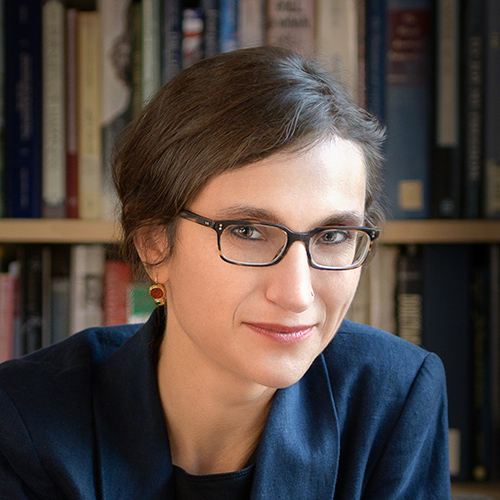
After (and despite) the Holocaust, about 900,000 Jews remained in Western Europe. While rebuilding their former lives and communities, they realized that the threat of antisemitism had not fully vanished with Hitler’s defeat and still needed to be addressed. In response to this challenge, various Jewish organizations committed themselves to the fight against anti-Jewish prejudice in postwar Europe, ranging from transnational collaborations to local grassroots activism. In his paper, Ludwig Decke will explore the origins of Jewish efforts against antisemitism in post-1945 Europe. By highlighting the work of defense organizations from France, England, West Germany, and the United States between the end of World War II and the so-called “Swastika epidemic” of 1959/60, he discusses the following questions: How did Jewish leaders and activists understand the nature of antisemitism? Which strategies did they choose to combat it? And to what extent did their efforts intersect with the political struggles of other marginalized groups during this period? The paper illuminates a historic crossroads that influenced the future of the Jews on the continent and shaped the ways in which Europeans would grapple with racial and religious discrimination until the present day.
To RSVP for this event, please email Dr. Miriam Mora
Ludwig Decke is a PhD candidate and a George L. Mosse Fellow in European Cultural History at the University of Wisconsin-Madison. As a fellow of the Berlin Program for Advanced German and European Studies, he is currently conducting research for his dissertation Antiracism after Auschwitz: Jews and the Fight against Discrimination in Postwar Europe.
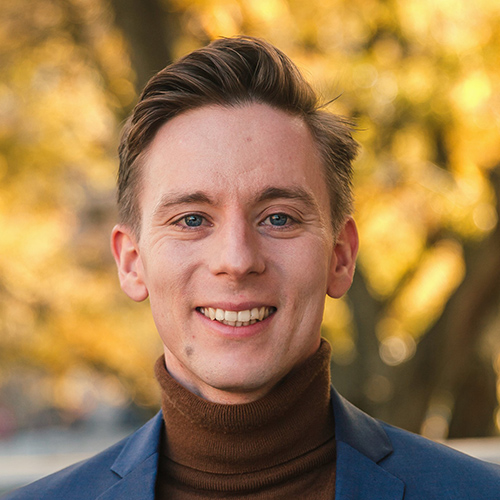
Ari Joskowicz is Associate Professor of Jewish Studies and History at Vanderbilt University, and chair of the Department of Jewish Studies. His most recent book is Rain of Ash: Roma, Jews, and the Holocaust, which appeared this year with Princeton University Press and won the 2023 Fraenkel Prize in Holocaust History.
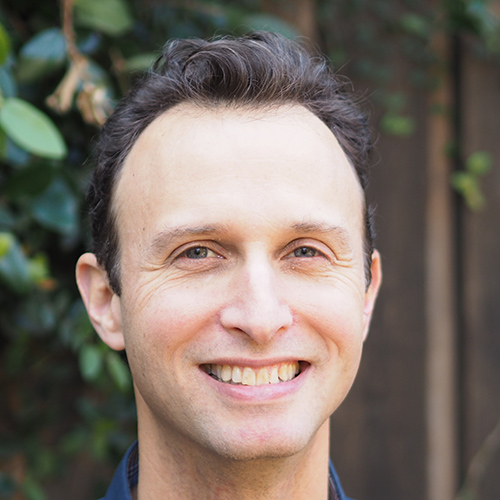
In this lecture, CJH NEH Scholar in Residence Helmut Walser Smith (Vanderbilt University) follows the postwar story of a group of Holocaust survivors from the small Swabian town of Haigerloch and argues that their restitution claims, while hedged in by legal categories, constituted an early form of truth telling. Focusing especially on the Buttenhausen Memorial erected in 1961, the presentation then shifts to public claims for truth about the Holocaust in the form of early commemoration. Although located in a village, this monument was essentially put up by Jews in New York and was less an act of memory than it was a form of mourning. The chapter concludes by asking when, where, and how the transition occurred to the first memorials erected by non-Jewish Germans. The presentation draws from the third chapter of the author's book-in-progress, tentatively entitled "Local Truth: How Jews and Germans made the Memory Culture of the Federal Republic."
To RSVP for this event, please register here
Helmut Walser Smith is the Martha Rivers Ingram Professor of History at Vanderbilt University in Nashville, Tennessee, and currently NEH Scholar in Residence at the Center for Jewish History in New York. His books have appeared in six languages and include German Nationalism and Religious Conflict: Culture, Ideology, Politics, 1870-1914 (Princeton, 1995), The Butcher’s Tale: Murder and Antisemitism in a German Town (W.W. Norton, 2002), The Continuities of German History (Cambridge University Press, 2008), and Germany: A Nation in its Time: Before, During, and After Nationalism (W.W. Norton/Liveright, 2020). He is also the editor of The Oxford Handbook of Modern German History (Oxford University Press, 2011) and a number of other edited volumes. Over the years, his research has been supported by the NEH, the German Academic Exchange, the Volkswagen Foundation, the Humboldt Foundation, and the John Simon Guggenheim Memorial Foundation. He is currently working on a book with the tentative title "Local Truth: How Jews and Germans made the Memory Culture of the Federal Republic."
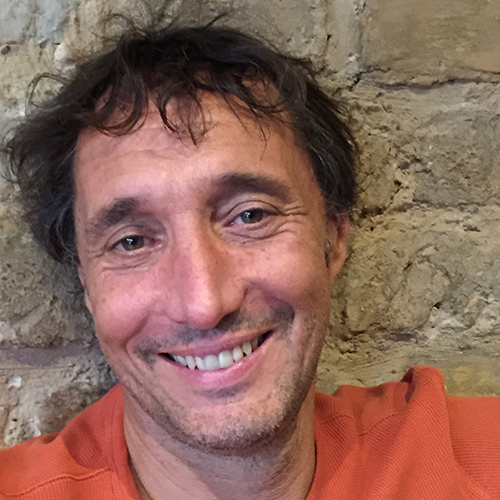
Michael Brenner (respondent) holds the chair of Jewish History and Culture at Ludwig Maximilian University in Munich. He is also Distinguished Professor of History and Seymour and Lillian Abensohn Chair in Israel Studies at American University and serves as International President of the Leo Baeck Institute for the Study of German-Jewish History. In 2021 he was the first recipient of the Baron Award for Scholarly Excellence in Research of the Jewish Experience. He is the author of ten books, translated into over a dozen languages. His latest books are In Hitler’s Munich: Jews, the Revolution, and the Rise of Nazism(Princeton University Press, 2022) and In Search of Israel: The History of an Idea (Princeton University Press, 2018).
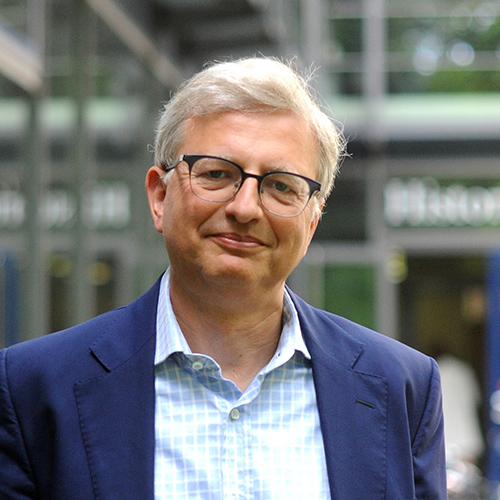
When a group of Jewish men in Butte, Montana joined the growing wave of American Jewish agitation against Jewish prostitution networks in 1909, they exiled, incarcerated, and/or deported many Jewish women and men enmeshed in Butte’s sex industry. But their efforts could not dislodge the powerful red-light district landlord and synagogue president they saw as Butte’s “chief malefactor” — until the 1910 Mann Act, which banned the interstate transportation of women for “immoral purpose[s],” enabled his conviction for a fluke trip across state lines. The saga of Butte’s Jewish sex work battles demonstrates how the Mann Act’s legal emphasis on interstate commerce redirected the focus of American Jewish anti-sex work campaigns away from profit structures and toward the surveillance of marriage and migration. It further demonstrates how carceral anti-prostitution tactics, which so many American Jews enthusiastically adopted to target Jewish men, unleashed state violence on the most vulnerable, particularly women and non-citizens. Finally, this episode illustrates how the structural conditions of American Jewishness in a Western mining boomtown shaped local Jewish sexual politics.
To RSVP for this event, please email Dr. Miriam Mora
Cassandra Euphrat Weston is a doctoral candidate in History and a graduate certificate student in Judaic Studies at the University of Michigan. She is a Lapidus Graduate Research Fellow at the Center for Jewish History in 2023-2024, working on a dissertation provisionally entitled "Sexual Dissidence, Jewishness, and American Radicalism, 1900-1930."
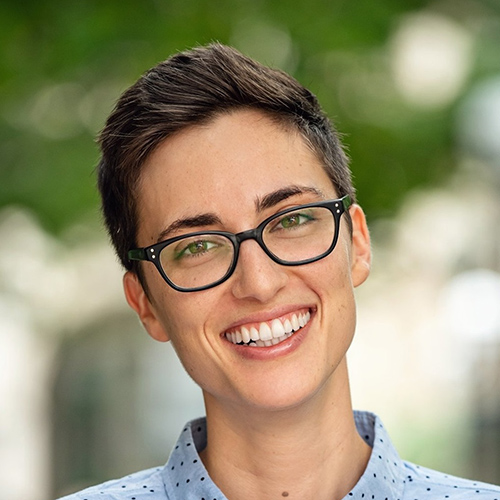
Tara Zahra is the Hanna Holborn Gray Professor of History at the University of Chicago and the Roman Family Director of the Neubauer Collegium for Culture and Society. Her most recent book is Against the World: Anti-Globalism and Mass Politics Between the World Wars (Norton, 2023).
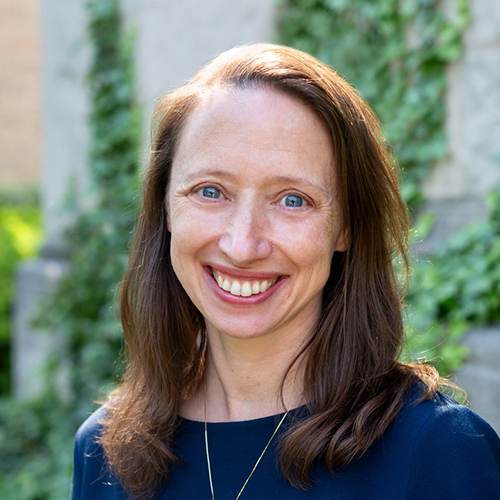
The topic of Mishory’s talk stems from his PhD Dissertation at Columbia University’s Department of Religion, which is devoted to several ‘secular’ books printed in the 15th and 16th centuries by Jewish printer Gershom Soncino. He has researched the reception and description of these books in the late-19th and early-20th-century discourse of Jewish Bibliography, following the question of how their ‘Jewishness’ has been classified and understood. How has the description and classification of early printed material since the Wissenschaft des Judentumsmoment of the 19th century treated Gershom’s ‘Jewishness’? In presenting the history of writing on early Jewish printing, Mishory will treat Jewish Bibliography less as a discourse set up to reveal already-known ‘Jewish’ material and an already-formed Jewish identity, but as one that in fact constitutes both.
To RSVP for this event, please email Dr. Miriam Mora
Ishai Mishory is a PhD Candidate at Columbia University’s Department of Religion. His Dissertation, about five ‘secular’ books printed by Jewish-Italian printer Gershom Soncino around the turn of the 16th century, combines Jewish Studies, books history and art history. He was has been a Fulbright Scholar in Italy, where he conducted research for it, as well as a Research Fellow at the Center for Jewish History (New York City), a Dissertation Fellow of the Institute for Religion and Public Life and a Fellow of the Institute for Israel and Jewish Studies, both at Columbia University. He published an article on the design of Hebrew letters for a Hebrew/Yiddish culture magazine in In geveb, an online academic Yiddish culture journal, and has presented his research at a recent symposium on the Jewish Book at Hebrew Union College (Cincinnati), at the annual meetings of the Association for Jewish Studies, the American Academy of Religion and The Sixteenth Century Society, at École normale supérieure (Paris) and at a symposium at the Folger Library (Washington, DC). A longtime academic translator, he has also illustrated several children’s books.
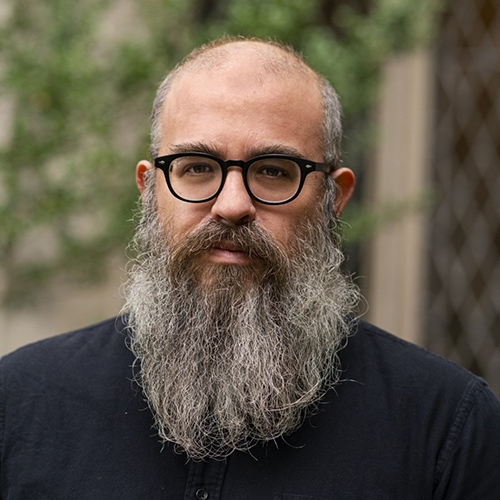
Adam Shear is Associate Professor and Chair of the Department of Religious Studies at the University of Pittsburgh. He has published on Jewish thought in the early modern period and the Enlightenment, early modern Jewish book culture, and Jewish-Christian relations. His first book, The Kuzari and the Shaping of Jewish Identity 1167-1900 (Cambridge University Press) was the winner of a National Jewish Book Award for Scholarship and the Morris D. Forkosch Award for the best first book in intellectual history (awarded by the Journal of the History of Ideas). Shear has held visiting fellowships at the Katz Center for Advanced Judaic Studies (University of Pennsylvania) and at Magdalen College (University of Oxford). He was the founding convenor of the Scholar’s Working Group on the History of the Jewish Book at the Center for Jewish History in New York and has served as a member of the Center’s Academic Advisory Council. Along with colleagues from Columbia University, the Jewish Theological Seminary, and the University of Pennsylvania, Shear is co-director of Footprints: Jewish Books Through Time and Place a long-term digital humanities project focusing on the circulation and movement of early printed Hebrew and Jewish books.
